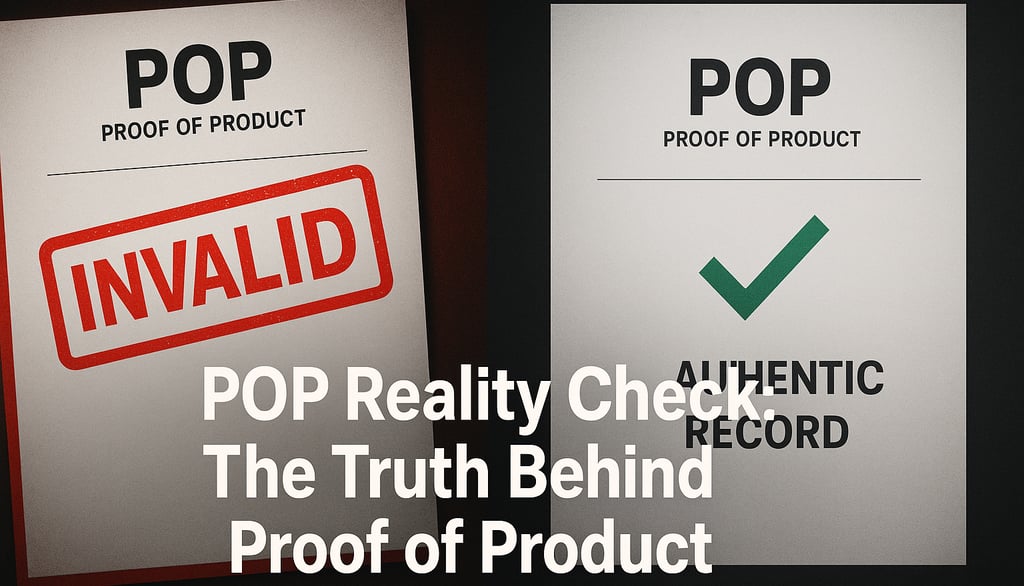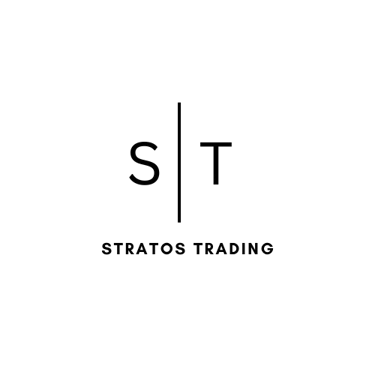POP Reality Check: The Truth Behind “Proof of Product”
In global petroleum trading, “Proof of Product” is the industry’s favorite buzzword — and one of its biggest traps. Stratos Trading CEO Pradesh Raj breaks down the truth behind POPs, exposing how fraudsters fabricate legitimacy and why only forensic verification can separate real barrels from digital fiction.
Pradesh Raj, CEO, Stratos Trading
10/10/20252 min read


💼 Introduction
Every week, my inbox looks like a museum of imagination.
“POP available immediately.”
“Ready to lift.”
“Refinery verified.”
You name it — I’ve seen it.
And 90% of those so-called Proof of Product (POP) documents are about as real as a unicorn pipeline.
Let’s clear something up. A POP is not a golden ticket. It’s not proof of anything until it’s verified — technically, operationally, and legally. Yet, in the oil and gas trade, it’s the most misused, misunderstood, and misrepresented document in circulation.
🧾 What a POP Actually Is
In simple terms, a POP is supposed to prove that a seller has access to physical product — that the barrels, tanks, or cargo truly exist.
Legitimate POPs are supported by:
Authentic terminal records
Storage contracts
Inspection reports (like SGS or Intertek)
Legal rights of ownership or allocation
In other words, a real POP connects dots — verifiable ones.
A fake POP, on the other hand, connects dreams.
🕵️♂️ The Problem with “Instant POPs”
Fraudsters know how hungry the market is for supply. That’s why the moment they say “POP ready,” brokers start forwarding documents like wildfire.
But here’s the trick — scammers rely on speed and excitement.
The faster you move, the less you check.
Here’s what I tell clients:
If someone can produce a POP in 30 seconds… they probably produced it in Photoshop too.
Real documentation takes coordination — inspection agencies, terminal ops, compliance officers. That doesn’t happen over coffee and a Wi-Fi connection.
🧩 Common POP Red Flags
Over the years, I’ve seen every variation of POP fakery imaginable. Here are a few giveaways (and no, I’m not giving the full checklist — that’s what we get paid for):
Dates that defy physics – when storage, inspection, and loading all occur on the same day.
Reference numbers that don’t exist – they look official but aren’t registered with any inspection agency.
Companies that “exist” only on paper – inactive registrations, cloned websites, or expired domains.
Densities or quantities that don’t align with product spec – numbers designed to impress, not to pass EN590 standards.
These are signals. But turning those signals into proof takes forensic-level verification — and that’s where Stratos steps in.
⚙️ What Real Verification Looks Like (Without Giving Away Our Playbook)
When my team verifies a POP, we don’t stop at the document. We trace it back — to terminals, inspection reports, and cross-market data.
We analyze metadata, reference archives, and agency consistency.
And we don’t rely on screenshots or emails.
Because in this business, evidence speaks louder than promises.
We’ve built our process on one principle: if it can’t be proven, it doesn’t exist.
🔒 Why It Matters
Every fake POP that enters circulation wastes time, kills trust, and sometimes triggers lawsuits.
For buyers, it’s lost credibility.
For brokers, it’s professional suicide.
And for institutions? It’s a compliance nightmare waiting to happen.
Verifying authenticity isn’t just about avoiding fraud — it’s about maintaining operational integrity.
At Stratos Trading, that’s not a service. It’s a standard.
💬 Conclusion
So the next time someone proudly waves a “POP” in your inbox, ask one question:
Can it be verified by someone who actually trades, or just someone who forwards PDFs?
If it’s the latter, you already know the answer.
📩 Get a Real Verification, Not a Story
Before you sign, commit, or transfer — get the paperwork checked by people who live in the trenches of real trade.
Send an email to info@stratosoil.com.my to request a sample verification report or arrange a consultation.
Trust is earned. Documents are tested. Deals are verified.
